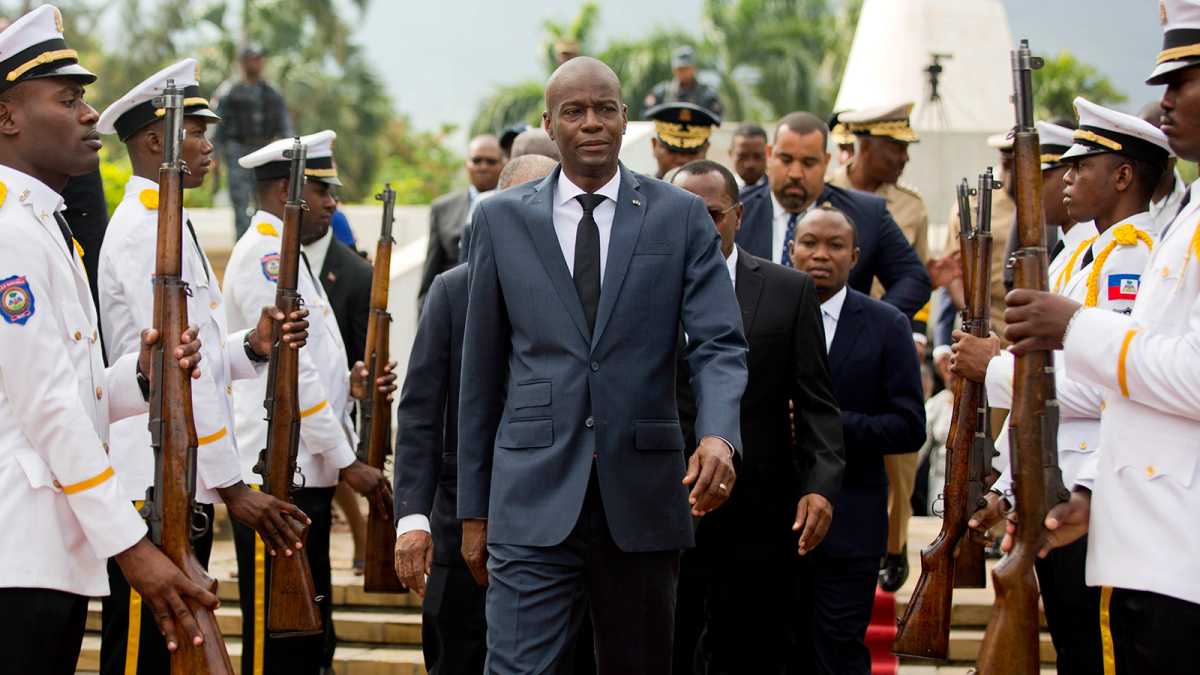Following the assassination of Haiti’s de-facto president Jovenel Moïse, the political turmoil continues to deepen in the Caribbean country. Different political sectors, within the government, are vying for power. National and international social movements fear that the chaos will be used as an excuse to increase foreign interference in the country. The investigation reveals that the US and at least one of its regional allies, Colombia, are somehow implicated in the crime. After this disclosure, some political experts suggest that the murder seems plotted to enable a foreign occupation in Haiti.
In the last official press conference on July 11, from the house of self-proclaimed interim president of Haiti, Claude Joseph, the director of the Haitian National Police (PNH), León Charles, reported that the police had arrested the alleged mastermind of the assassination of de-facto president Jovenel Moïse: Christian Emmanuel Sanon. Sanon is a Florida-based Christian pastor and licensed doctor in Haiti.
According to, Charles, when the members of the armed commando group responsible for killing the president were blocked, the first person they called was Sanon. Charles also reported that Sanon then called two other people, whose identities were not disclosed, and assured that the police would arrest them soon.
The head of the national police also explained that while searching Sanon’s house, the police found some equipment in which the initials DEA (Drug Enforcement Administration) were inscribed, in addition to some rifles and pistols, ammunition, four Dominican Republic license plates, two vehicles and various letters addressed to different sectors of the country.
According to the preliminary investigation by Haitian police, Sanon arrived in Haiti on a private flight in early June, accompanied by some of the arrested Colombian mercenaries, whom he hired from a US-based company to guarantee his personal security and protect his business.
Sanon’s participation, however, has raised many questions. Friends and family members of the Florida-based doctor allege that he was set up and that he would have never been interested in a plan that involved violence.
With Sanon’s arrest, the total number of people arrested in the case is 21: 3 Haitian-Americans and 18 Colombians.
On July 9, Charles had reported that there were at least 28 people involved in Moïse’s assassination. So far, 21 have been arrested, seven have been killed during the clashes with security forces, and the whereabouts of five others are still unknown.
The same day, July 9, Colombian defense minister Diego Molano confirmed that the captured mercenaries are Colombian and are retired soldiers of the Colombian national army. However, in contrast to Molano’s statement, Colombian journalist Gonzalo Guillen, investigated the profiles of the detained mercenaries and confirmed that at least six detainees are active army personnel and two of them are sergeants.
Meanwhile, in conversation with Haitian newspaper Le Nouvelliste, Pétionville’s justice of peace, Clément Noël, reported that according to the statements of the two captured Haitian-American mercenaries: James Solages and Joseph Vincent, the “mission’ was to arrest the president and not to kill him. They said that their objective was to serve as translators to the other captured Colombian mercenaries. They refused to declare who had sponsored the operation, however, their presentation at Moïse’s residence as “DEA agents” raise suspicion of the participation of the United States in Moise’s assassination.
Furthermore, the illegitimate self-proclamation of Claude Joseph as the country’s president and the support he enjoys from the country’s Police and Armed Forces, as well as the recognition from the US and the UN, also provides an additional proof of a conspiracy from the United States.
This weekend, eight out of the ten active senators of the country chose Senator Joseph Lambert to be the new interim President because they thought Claude Joseph lacked legitimacy since Moise signed a decree replacing him with interior minister Ariel Henry just two days before being assassinated. However, Lambert’s swearing-in event was cancelled and his proclamation was not legitimized.
On July 9, the US government rejected the Haitian government’s request for troops to help stabilize the country and secure key infrastructure such as its oil reserves, port and airport in the wake of the after Moise’s assassination. The request was made by Mathias Pierre, the Minister Delegate in charge of Electoral Questions, the same day.
URGENTE #HAITI. Como venimos analizando, la trama detrás de la trama del magnicidio, es la estrategia de caos que habilite una ocupación internacional. Según The New York Times y Reuters, el ministro Mathias Pierre habría solicitado a #EEUU el envío de tropas norteamericanas.
— Lautaro Rivara (@LautaroRivara) July 10, 2021
With reports on the ground from Lautaro Rivara.





